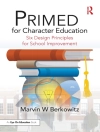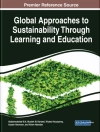Honorable Mention for the 2022 Modern Language Association Prize for an Edited Collection
Interrogates how artists have created new ways to imagine the past of American slavery
From Kara Walker’s hellscape antebellum silhouettes to Paul Beatty’s bizarre twist on slavery in The Sellout and from Colson Whitehead’s literal Underground Railroad to Jordan Peele’s body-snatching Get Out, this volume offers commentary on contemporary artistic works that present, like musical deep cuts, some challenging “alternate takes” on American slavery. These artists deliberately confront and negotiate the psychic and representational legacies of slavery to imagine possibilities and change. The essays in this volume explore the conceptions of freedom and blackness that undergird these narratives, critically examining how artists growing up in the post–Civil Rights era have nuanced slavery in a way that is distinctly different from the first wave of neo-slave narratives that emerged from the Civil Rights and Black Power Movements.
Slavery and the Post-Black Imagination positions post-blackness as a productive category of analysis that brings into sharp focus recent developments in black cultural productions across various media. These ten essays investigate how millennial black cultural productions trouble long-held notions of blackness by challenging limiting scripts. They interrogate political as well as formal interventions into established discourses to demonstrate how explorations of black identities frequently go hand in hand with the purposeful refiguring of slavery’s prevailing tropes, narratives, and images.
A V Ethel Willis White Book
Tabla de materias
Acknowledgments
Introduction
Ilka Saal and Bertram D. Ashe
1. The Blackest Blackness: Slavery and the Satire of Kara Walker
Derek Conrad Murray
2. Three-Fifths of a Black Life Matters Too: Four Neo-Slave novels from the Year Postracial Definitively Stopped Being a Thing
Derek C. Maus
3. Whispering Racism in a Postracial World: Slavery and Post-Blackness in Paul Beatty’s the Sellout
Cameron Leader-Picone
4. Getting Graphic with Kindred:
The Neo-Slave Narrative of the Black Lives Matter Movement
Mollie Godfrey
5. ‘Stay Woke’: Post-Black Filmmaking the Afterlife of Slavery in Jordan Peele’s Get Out
Kimerly Nichele Brown
6. The Song: Living with ‘Dixie’ and the ‘Coon Space’ of Post-Blackness
Chenjerai Kumanyika, Jack Hitt, and Chris neary, with an introduction by Bertram D. Ashe
7. Performing Slavery at the Turn of the Millennium: Stereotypes, Affect, and Theatricality in Branden Jacobs-Jenkins’s Neighbors and Young Jean Lee’s The Shipment
Ilka saal
8. Thylias Moss’s Slave Moth: Liberatory Verse Narrative and Performance Art
Malin Pereira
9. Plantation Memories: Cheryl Dunye’s Representation of a Representation of American Slavery in the Watermelon Woman
Bertram D. Ashe
10. ‘An Audience Is a Mob on Its Butt’: An Interview with Branden Jacobs-Jenkins
Bertram D. Ashe and Ilka Saal
List of Contributors
Index
Sobre el autor
Ilka Saal is Professor of American Literature at the University of Erfurt, Germany and the author of New Deal Theater: The Vernacular Tradition in American Political Theater (Palgrave, 2007), which won the 2008 Book Award of the Southern Chapter of the Modern Language Association. She is also the general editor of Theatre Annual: A Journal of Theatre and Performance of the Americas.












